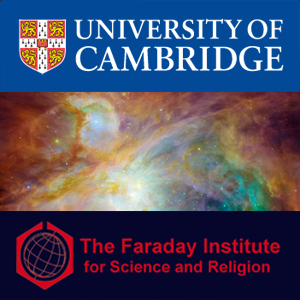How did Augustine's thought shape a scientific worldview?
Duration: 57 mins 26 secs
Share this media item:
Embed this media item:
Embed this media item:
About this item

| Description: | Research Seminar given by Prof Karla Pollmann on 6th October 2015 |
|---|
| Created: | 2015-10-07 11:59 |
|---|---|
| Collection: | Faraday Institute Lectures |
| Publisher: | Faraday Institute |
| Copyright: | Faraday Institute |
| Language: | eng (English) |
| Keywords: | Augustine; Pollmann; faraday; science; religion; |
| Abstract: | If a historical perspective is taken into account, modern interactions between science and religion tend to be based on the assumption that early Christian thinkers were generally hostile towards the sciences, and had a Biblically grounded, pre-scientific world-view. This paper will carefully analyse some ideas of Augustine of Hippo (354-430), arguably the most influential early Christian thinker in the Latin West, leading to a much more nuanced picture. In particular Augustine’s notion of the complementarity of the sciences and faith, his insistence on the validity of some scientific thought as opposed to an unsophisticated understanding of the Bible, as well as his awareness that the sciences cannot monopolize the generation of a comprehensive view of reality deserve modern attention |
|---|---|
Available Formats
| Format | Quality | Bitrate | Size | |||
|---|---|---|---|---|---|---|
| MPEG-4 Video | 480x360 | 1.93 Mbits/sec | 833.57 MB | View | Download | |
| WebM | 480x360 | 989.8 kbits/sec | 416.48 MB | View | Download | |
| iPod Video | 480x360 | 520.45 kbits/sec | 218.93 MB | View | Download | |
| MP3 | 44100 Hz | 249.79 kbits/sec | 105.17 MB | Listen | Download | |
| Auto * | (Allows browser to choose a format it supports) | |||||

